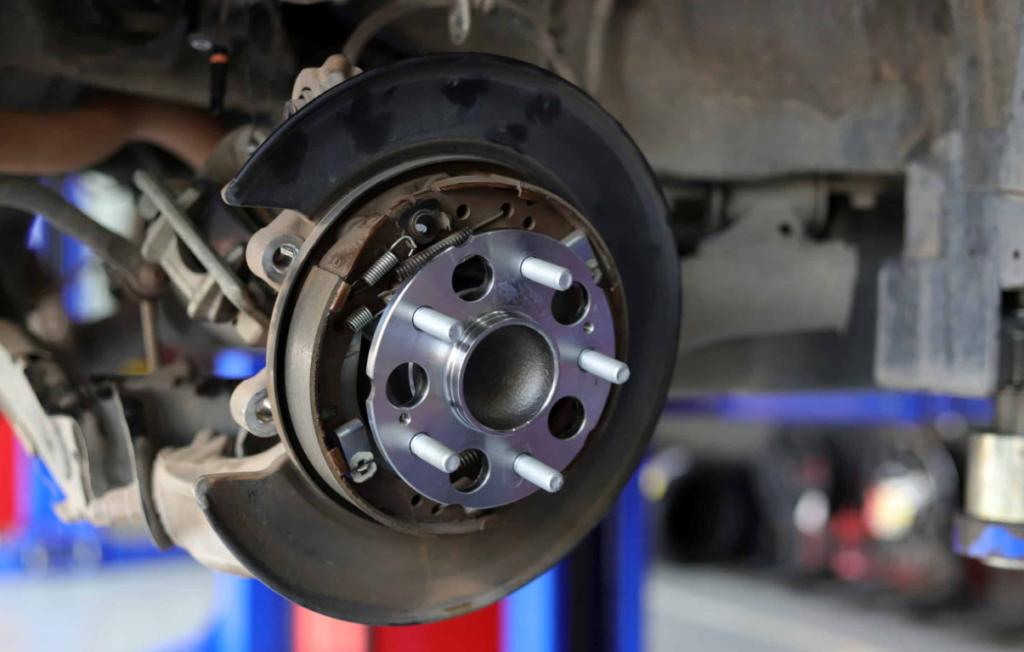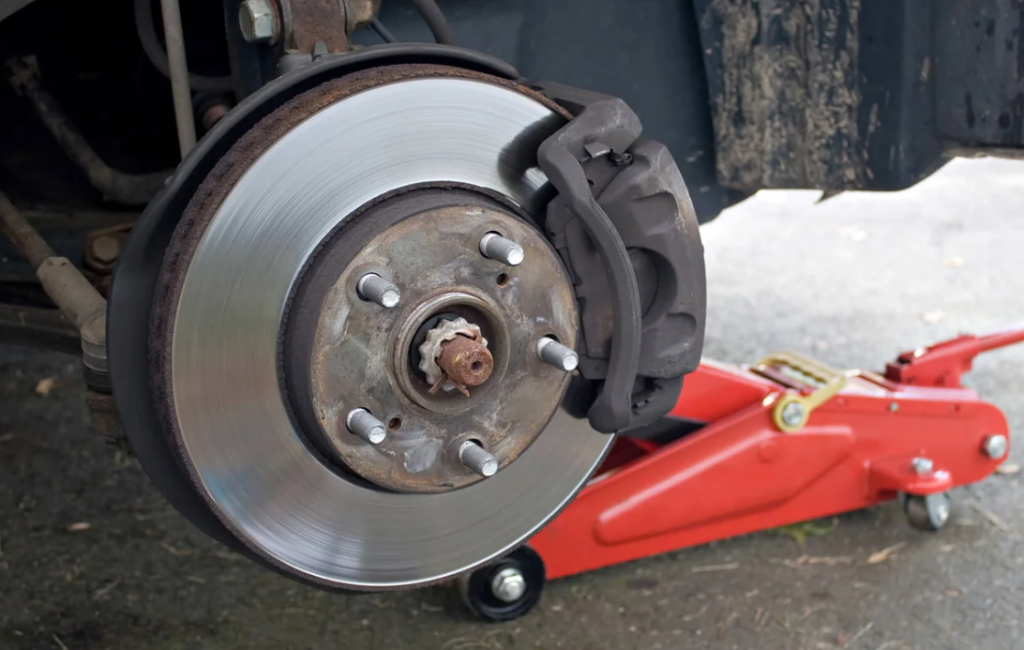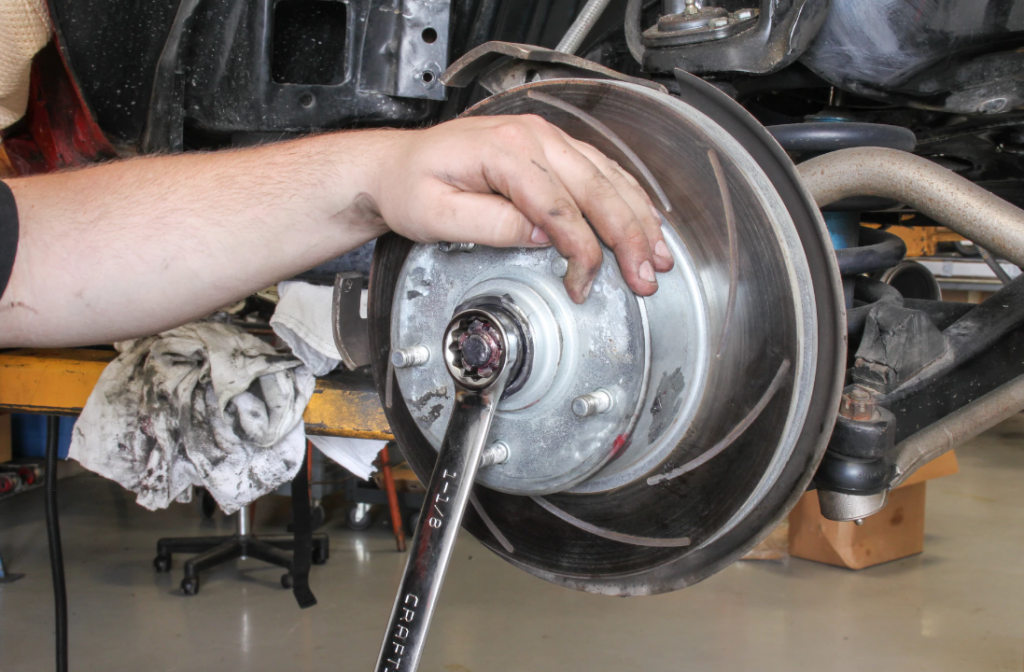A wheel bearing is a set of steel balls or tapered rollers held together by a metal ring called a race. They enable wheels to spin fast with minimal friction. Essentially, it’s a crucial component that sits between the wheel and the axle, allowing the wheel to move freely while bearing the weight of the vehicle.

Importance of Wheel Bearings in Vehicles
The importance of wheel bearings cannot be overstated. They play a vital role in ensuring the vehicle’s wheels turn smoothly with minimal resistance. By reducing friction, they enhance fuel efficiency, improve tire life, and most importantly, ensure the safety and comfort of the ride. If you’ve ever wondered, how long will a wheel bearing last after it starts making noise, it’s essential to understand its significance first.
The Anatomy of a Wheel Bearing
Materials Used
Wheel bearings are predominantly made from high-grade steel. The choice of steel is crucial due to its strength, durability, and resistance to wear under high pressure and heat. This metal can effectively handle the car’s weight and the stresses of constant motion, making it ideal for such a pivotal role.
Design & Construction
At its core, the wheel bearing is a straightforward component. Its primary design includes inner and outer races, a set of balls or rollers, and a cage that keeps these balls or rollers evenly spaced. The precision with which wheel bearings are manufactured is vital. Even minor imperfections can drastically reduce their lifespan and efficiency.
Role in Vehicle Dynamics
While the primary role of wheel bearings is to allow the wheel to rotate with minimal friction, they also significantly influence vehicle dynamics. Good wheel bearings ensure straight-line stability, precise steering, and contribute to the overall balance and responsiveness of a car, especially when cornering.
Signs of a Failing Wheel Bearing
Audible Noises: The First Red Flag
One of the earliest indications of a wheel bearing issue is the noise it produces. If you’ve found yourself pondering, how long will a wheel bearing last after it starts making noise?, then you’ve likely encountered this symptom. A humming, rumbling, or growling noise that increases with acceleration or as the vehicle turns is a classic sign. Ignoring this can be detrimental, as the noise signifies increasing friction and wear.
Vibrations in the Steering Wheel
A failing wheel bearing can also manifest as noticeable vibrations in the steering wheel, especially at higher speeds. These vibrations arise because the uneven wear or damage in the bearing creates resistance, preventing the smooth rotation of the wheel. This irregular movement transmits through the suspension system to the driver’s hands, emphasizing the question, how long will a wheel bearing last after it starts making noise?.
Uneven Tire Wear Patterns
Lastly, if a wheel bearing is on its way out, you might notice uneven tire wear. This happens because a compromised bearing can alter the wheel’s alignment. While tires usually wear out due to various reasons, spotting a distinct, irregular wear pattern can point toward a wheel bearing issue.
Wheel bearings are silent heroes in a vehicle’s anatomy, ensuring seamless operation and safety. While they’re built for durability, like all mechanical components, they wear out over time. When they start making noise, it’s the vehicle’s way of crying out for attention. Addressing the issue promptly not only ensures your safety but can also save you from potential costly repairs down the line. Always remember, when it comes to the question of “how long will a wheel bearing last after it starts making noise?”, sooner is always better than later.
Causes of Wheel Bearing Damage
Normal Wear and Tear
Like all mechanical parts, wheel bearings are subject to the inevitable wear and tear. As vehicles cover more mileage, bearings endure countless revolutions, leading to a gradual degradation. Depending on driving conditions and the quality of the roads frequently traveled, a typical wheel bearing can last anywhere from 85,000 to 100,000 miles. However, the pivotal question remains: “how long will a wheel bearing last after it starts making noise due to wear and tear?”
Accidents or Impact
A significant impact, such as hitting a pothole at high speeds or being involved in an accident, can lead to immediate damage or expedite the wear of wheel bearings. The jolt can cause misalignment, cracks, or even breakage. After such incidents, the question of how long will a wheel bearing last after it starts making noise? becomes even more pressing, as the bearing’s structural integrity may be compromised.
Poor Quality Materials or Manufacturing
The longevity and reliability of wheel bearings heavily depend on the quality of materials and the precision of manufacturing. Bearings made from inferior materials or those that haven’t been manufactured to exact specifications can fail prematurely. Such issues often lead drivers to wonder, “how long will a wheel bearing last after it starts making noise due to subpar quality?”
Lack of Proper Maintenance
Timely maintenance and servicing can extend the life of wheel bearings. Conversely, neglecting regular checks, not lubricating, or ignoring early signs of wear can shorten a bearing’s lifespan. Once again, drivers should be proactive and not wait to ask, “how long will a wheel bearing last after it starts making noise?” because by then, it might be too late.

Life Expectancy of a Noisy Wheel Bearing
Variable Factors Influencing Longevity
The duration a noisy wheel bearing can last is influenced by various factors. These include the extent of the damage, driving conditions, vehicle weight, and how often the vehicle is used. While it’s challenging to provide a one-size-fits-all answer, understanding these variables gives insight into the looming question of the bearing’s remaining life.
Average Duration Post the Appearance of Noise
On average, once a wheel bearing starts making noise due to wear, damage, or lack of lubrication, it has anywhere from 2,000 to 10,000 miles left before a complete failure. However, this range can vary and should not be used as a definitive guide. The urgency of how long will a wheel bearing last after it starts making noise? demands immediate attention.
Severity of the Noise: A Clue to Remaining Lifespan
The loudness and consistency of the noise can serve as a clue. A faint noise that appears occasionally might suggest you have some time, while a persistent, loud grinding or humming noise can indicate imminent failure.
Risks of Ignoring a Noisy Wheel Bearing
Safety Concerns
The primary risk of driving with a bad wheel bearing is safety. A completely failed bearing can cause the wheel to stop turning or even fall off, leading to a catastrophic accident, especially at high speeds.
Further Damage to the Vehicle
Ignoring the issue can cause collateral damage. A bad bearing increases friction, which can affect the brake assembly, the hub, and other components of the wheel system. Such negligence intensifies the inquiry: “how long will a wheel bearing last after it starts making noise and affects other parts?”
Financial Implications
Postponing repairs can lead to more extensive (and expensive) damages. Addressing a noisy wheel bearing promptly can save significant sums in the long run, making it financially prudent to act sooner rather than later.
While wheel bearings are built for endurance, they are not impervious to wear, damage, or defects. Regular maintenance, quality checks, and prompt attention to issues can ensure safety and optimal vehicle performance. When confronted with the pressing question, “how long will a wheel bearing last after it starts making noise?”, it’s always best to consult a professional and prioritize safety above all.
When to Seek Professional Assistance
Every vehicle owner has heard or felt that dreaded grinding or humming noise coming from the wheels. One of the common culprits behind this is a failing wheel bearing. A frequently asked question that arises is, “how long will a wheel bearing last after it starts making noise?” While the exact duration varies, this article delves into when you should seek professional assistance, the pros and cons of repair vs replacement, and tips on maintenance.
Early Diagnosis and its Benefits
Catching a problem early always provides benefits, and this is especially true for wheel bearings. If you’re wondering, how long will a wheel bearing last after it starts making noise?, you should know that the earlier you diagnose it, the better. Early diagnosis:
- Reduces Further Damage: If left unchecked, a faulty wheel bearing can cause damage to other parts, like the hub, the wheel, and the spindle.
- Saves Money: Addressing the issue early can prevent more costly repairs or replacements down the line.
- Ensures Safety: A severely damaged wheel bearing can lead to the wheel coming off while driving, which is a severe safety concern.
Choosing a Trusted Mechanic or Service Center
How long will a wheel bearing last after it starts making noise? – the answer can vary depending on the advice you get. Hence, always choose a trusted mechanic or service center. Look for:
- Reputations & Reviews: Online reviews or word of mouth can guide you to a reliable professional.
- Experience: Mechanics who have dealt with numerous wheel bearing cases are more likely to give accurate advice and service.
- Certifications: Ensure the mechanic or service center has the necessary industry certifications.
DIY Checks for the Adventurous
For those who prefer a hands-on approach, there are some checks you can do:
- Listen: The noise is the first indicator. If you hear grinding, clicking, or rumbling, especially while turning, it might be a bearing issue.
- Feel: A faulty bearing might cause vibration in the steering wheel, especially at higher speeds.
- Look: Check for any excessive play by jacking up the car and wiggling the wheel.
However, if you’re unsure after these checks, it’s best to consult a professional.

Repair vs Replacement
“How long will a wheel bearing last after it starts making noise?” Depending on the severity, you might have to choose between repair and replacement.
Factors to Consider
- Extent of Damage: Minor issues might be repairable, while extensive wear requires a replacement.
- Age of Vehicle: Older vehicles might benefit more from a replacement due to general wear and tear of adjacent parts.
- Future Usage: If you plan to use the vehicle extensively, opting for a replacement might be a safer bet.
Cost Implications
A repair might be less costly upfront but consider the longevity. A replacement, while more expensive, could offer a longer-lasting solution.
Time and Duration of Repair/Replacement
Repairs might be quicker, taking just a few hours. However, a full replacement can take a day or more, especially if parts need ordering.
Maintenance Tips for Prolonged Wheel Bearing Life
To avoid constantly asking, how long will a wheel bearing last after it starts making noise?, you can follow these maintenance tips:
Regular Vehicle Check-ups
Frequent inspections can identify potential issues early. Make sure to have your car examined at least once a year, or more if you drive extensively.
Addressing Minor Issues Promptly
If you hear or feel something off, address it immediately. Don’t wait, hoping it will resolve on its own.
Importance of Using Quality Replacement Parts
When replacing any parts, especially something as critical as wheel bearings, always opt for quality. Cheap parts might save money initially but can cost more in the long run due to premature failure or further damages.
knowing how long will a wheel bearing last after it starts making noise is vital. But equally important is understanding when to seek help, how to choose between repair and replacement, and ensuring you maintain your vehicle for prolonged wheel bearing life. Safe driving!
Summary
Understanding the intricacies of vehicle maintenance is critical to ensuring longevity and safety while driving. One of the most common questions that car owners have relates to the wheel bearings: How long will a wheel bearing last after it starts making noise? To help break down this topic and provide some clarity, we’ve created this comprehensive guide.
Key Takeaways
- Wheel bearings play a crucial role in a vehicle’s performance.
- The onset of noise is often an early indicator of a wheel bearing issue.
- How long will a wheel bearing last after it starts making noise is a question with a variable answer, but timely intervention is vital.
- It’s crucial to differentiate between wheel bearing noise and other vehicle sounds for accurate diagnosis and action.
Importance of Timely Action
Delaying action after detecting a noisy wheel bearing can lead to:
- Increased repair costs due to collateral damage.
- Potential safety hazards, including the risk of the wheel detaching.
- Reduced efficiency and performance of the vehicle.
Addressing the issue promptly ensures the vehicle remains in optimal condition and reduces potential hazards.
Frequently Asked Questions (FAQs)
Can a vehicle still be driven with a noisy wheel bearing?
Yes, a vehicle can technically still be driven with a noisy wheel bearing. However, it isn’t recommended. The question isn’t so much about how long will a wheel bearing last after it starts making noise but rather about the risks involved in continuing to drive with a faulty bearing. The longer it’s left untreated, the greater the potential damage and safety risks.
How often should wheel bearings be replaced?
Typically, wheel bearings should last between 85,000 to 100,000 miles under normal driving conditions. However, frequent driving on rough terrains, exposure to water and debris, or manufacturing defects can reduce this lifespan. Always pay attention to any unusual sounds or vibrations.
What is the cost of replacing a wheel bearing?
The cost can vary based on the make and model of the vehicle and the location of the service. On average, you might expect to pay anywhere from $150 to $600 for parts and labor. High-end or luxury vehicles could potentially cost more.
Are there any temporary fixes for a noisy wheel bearing?
There are no reliable temporary fixes for a noisy wheel bearing. Some might suggest using lubricants or sealants, but these are not long-term solutions and can sometimes exacerbate the problem. The best course of action is to address the issue head-on by consulting a professional.
How can one differentiate between wheel bearing noise and other vehicle noises?
Wheel bearing noise typically presents as a grinding, humming, or rumbling sound. This noise often becomes more pronounced with increased speed and can change in pitch or volume when turning. Other vehicle noises, such as those from worn-out brakes, can be sharp and squeaky. Always consult a mechanic if unsure.
In conclusion, understanding the nuances surrounding the question, How long will a wheel bearing last after it starts making noise? is crucial. It’s not just about the longevity of the bearing, but the overall safety and performance of the vehicle. Being proactive and informed can save both money and potential accidents in the future.